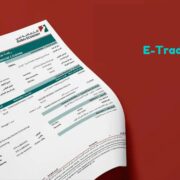A major advantage of online notebooks is the ability to quickly capture notes no matter where you are. Whether you’re at your desktop, in a meeting, or on your smartphone, cloud-based notebooks allow you to easily clip content, jot down notes, and save ideas whenever inspiration strikes. It facilitates getting thoughts out of your head and onto pixels so you can free up mental bandwidth. Online notebooks mimic the fluidity of analog tools like paper notebooks, without the risk of losing them or having limited page space. However, they provide additional features like backlinking between notes, tagging for more effective search and recall, uploading files and attachments, embedding media from the web, and more. This flexible framework supports an ad-hoc approach to note-taking as thoughts occur to you.
Enabling idea elaboration
Notebooks with endless pages, online notes have finite visual real estate that encourages restraint in capturing only the most salient points. But tools like backlinking between separate notes support idea elaboration in a non-linear fashion. private notebook creates a web of connected notes across your knowledge base to flesh out ideas as much as needed outside the constraints of page space. Online notebooks also facilitate what writer Nicholson Baker termed “spread thinking”, where related but separate ideas co-exist to reflect the intricacies of complex thought. By linking notes through tags, links, and other connections, you trace an idea elaborated across multiple notes in a way that mirrors the brain’s spread activation of neural networks.
Serving as an external brain
Think of your online notebook as an always-available external repository for personal memory and knowledge. Our human brains did not evolve to store and retrieve huge amounts of digital information. Offloading this content into a trusted system outside of biological memory frees up the cognitive load. Online notebooks serve as searchable personal databases for everything you want fast access to – ideas, notes, web clips, PDFs, images, and more. Whether trying to remember that great article you read last month or locate the travel booking confirmation you archived last year, your private system becomes a search engine and memory prosthetic.
Accelerating learning
Online notebooks also accelerate teach across multiple areas you to collect, connect, elaborate, structure, search, recall, and reuse your knowledge. You compile notes on topics of interest, enrich them with external information through links and attachments, flesh out ideas through backlinking, apply structure like tagging and tables where helpful, and search across it all later. It creates a web of personal knowledge that pushes your understanding deeper through a feedback loop. The act of articulating what you know reinforces memory and reveals knowledge gaps to fill. It accelerates the learning curve far more than passive information consumption. Your notebook thus becomes both a reflection of and a vehicle for lifelong learning.
Fragmented to focused
A core benefit of online notebooks is bringing together the informational fragmentation across the apps and web experiences that consume our daily lives. Work, learning, communication, entertainment, finances, health, shopping – our digital tools remain stubbornly soloed. Even trying to send a link between your smartphone and desktop requires confusing workarounds. Online notebooks provide a straightforward way to compile the bits and pieces from these silos in one centralized place. It supports a shift from scattered fragmentation toward focused integration oriented around your personal goals and projects. You control what flows in and how it’s organized rather than leaving it scattered across dozens of apps.














Comments